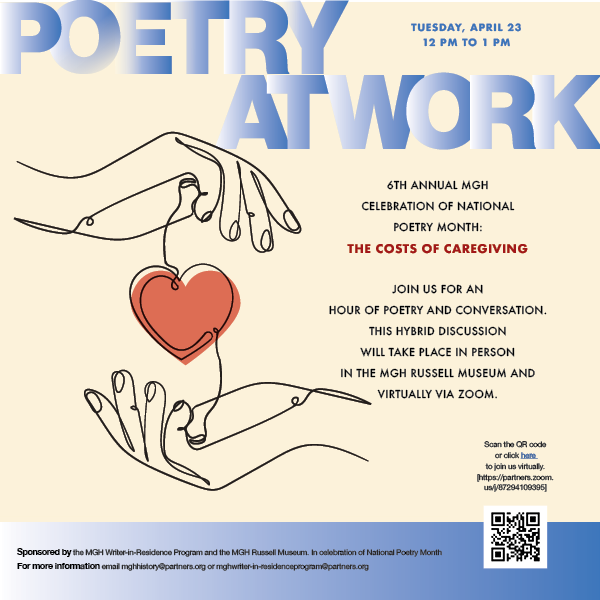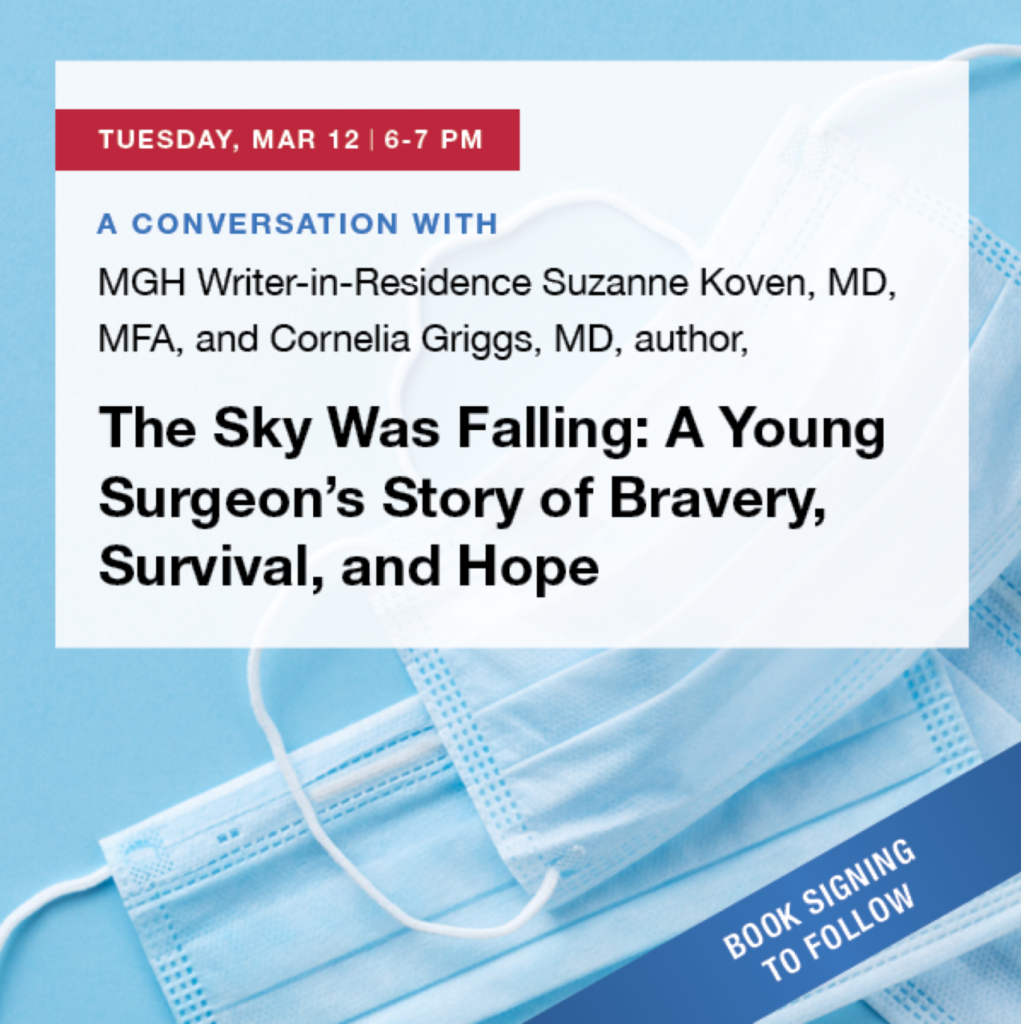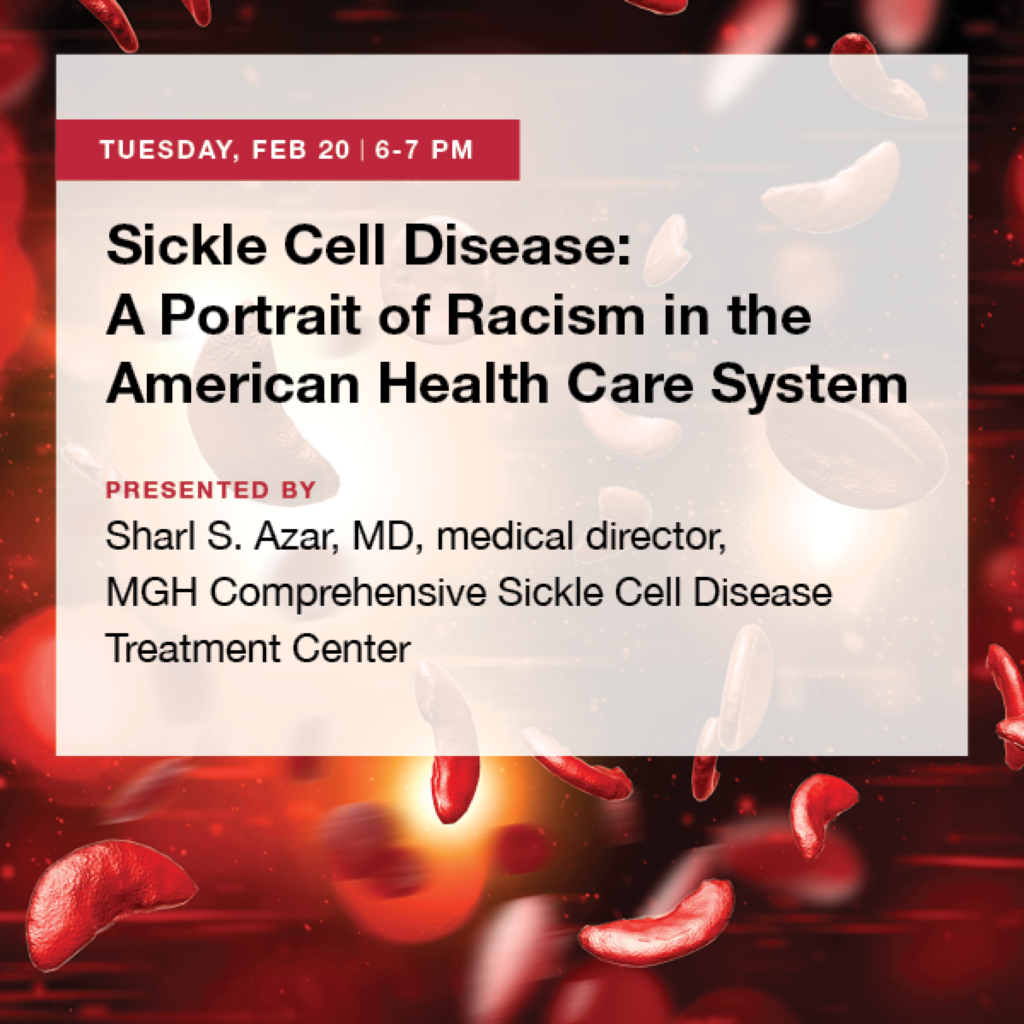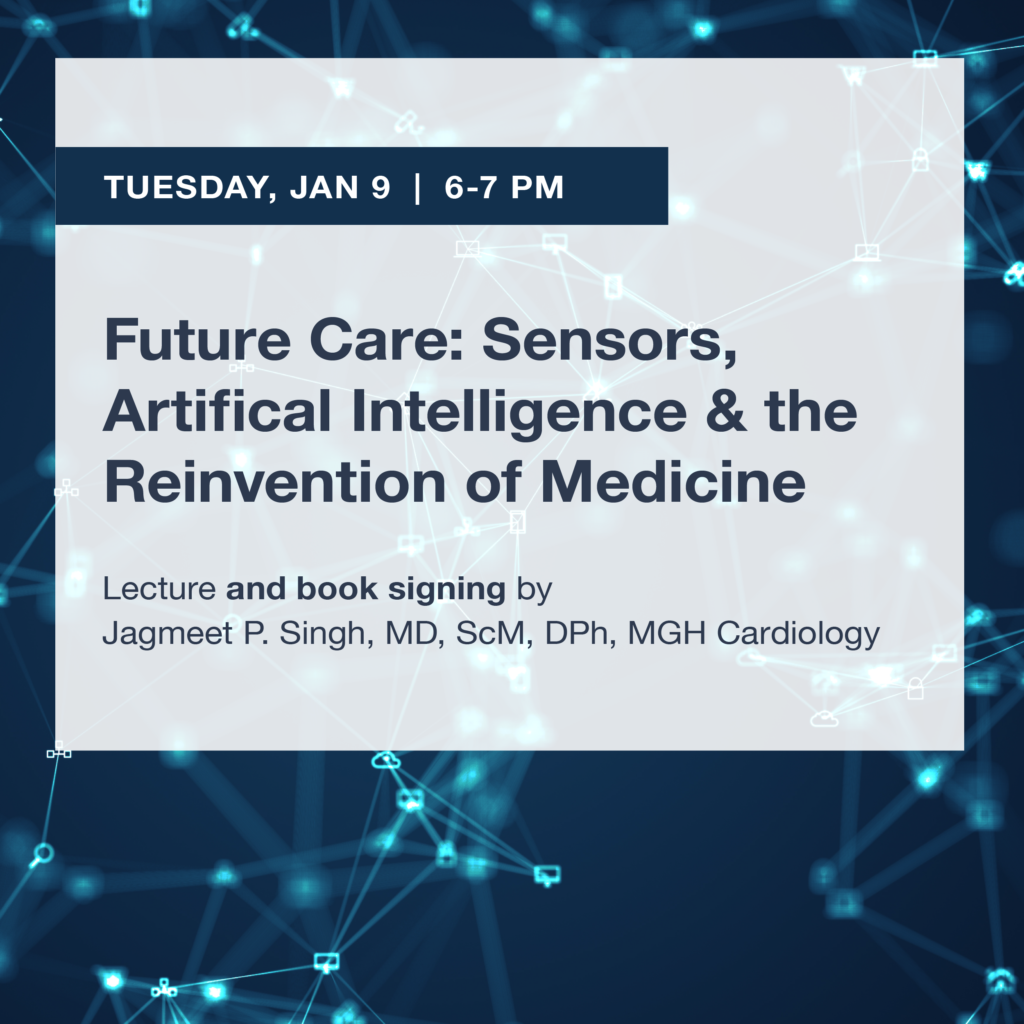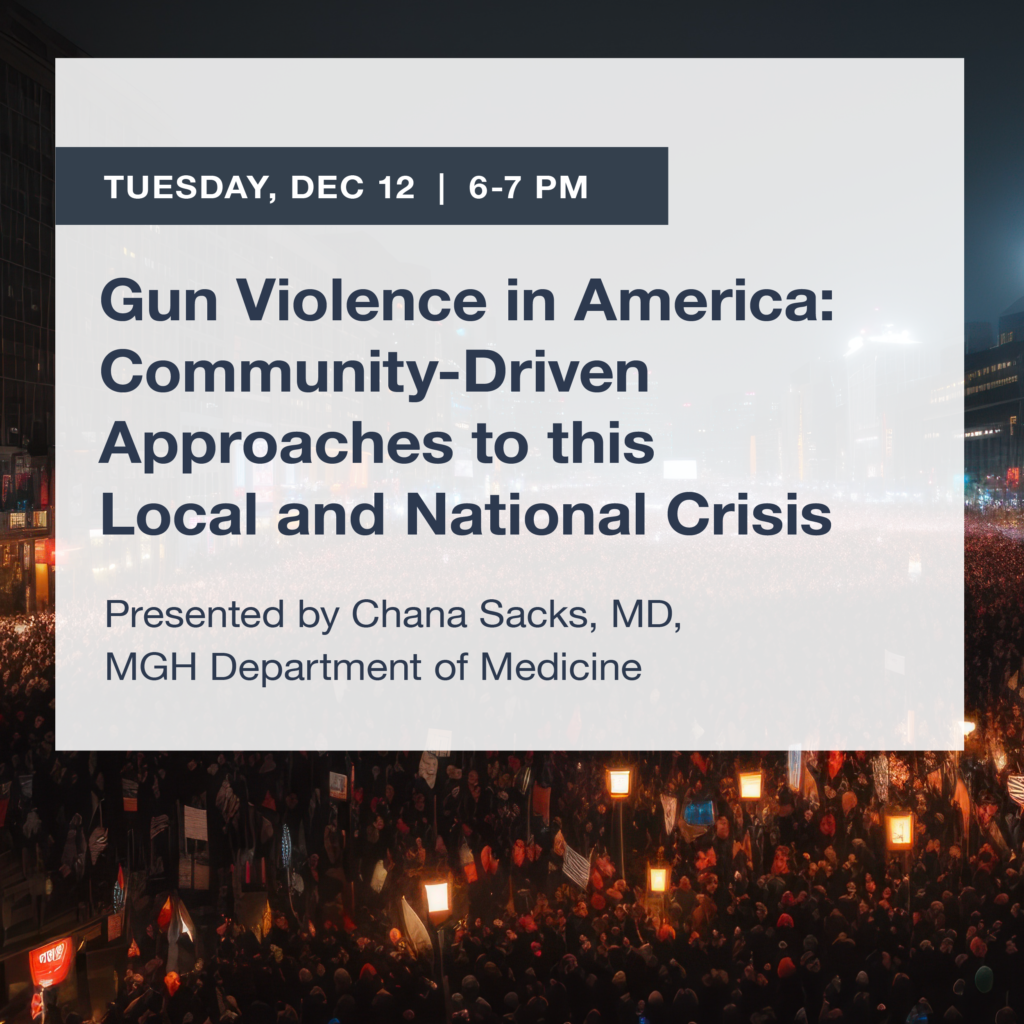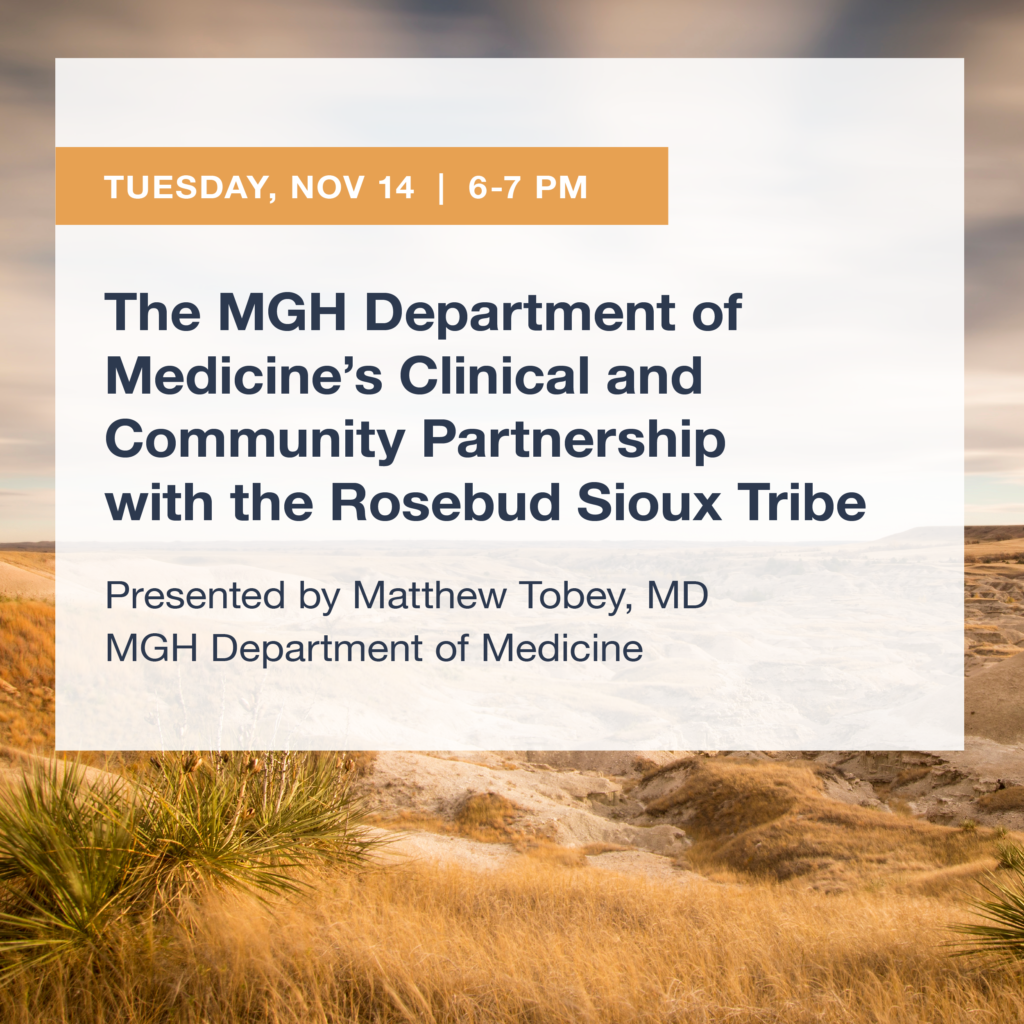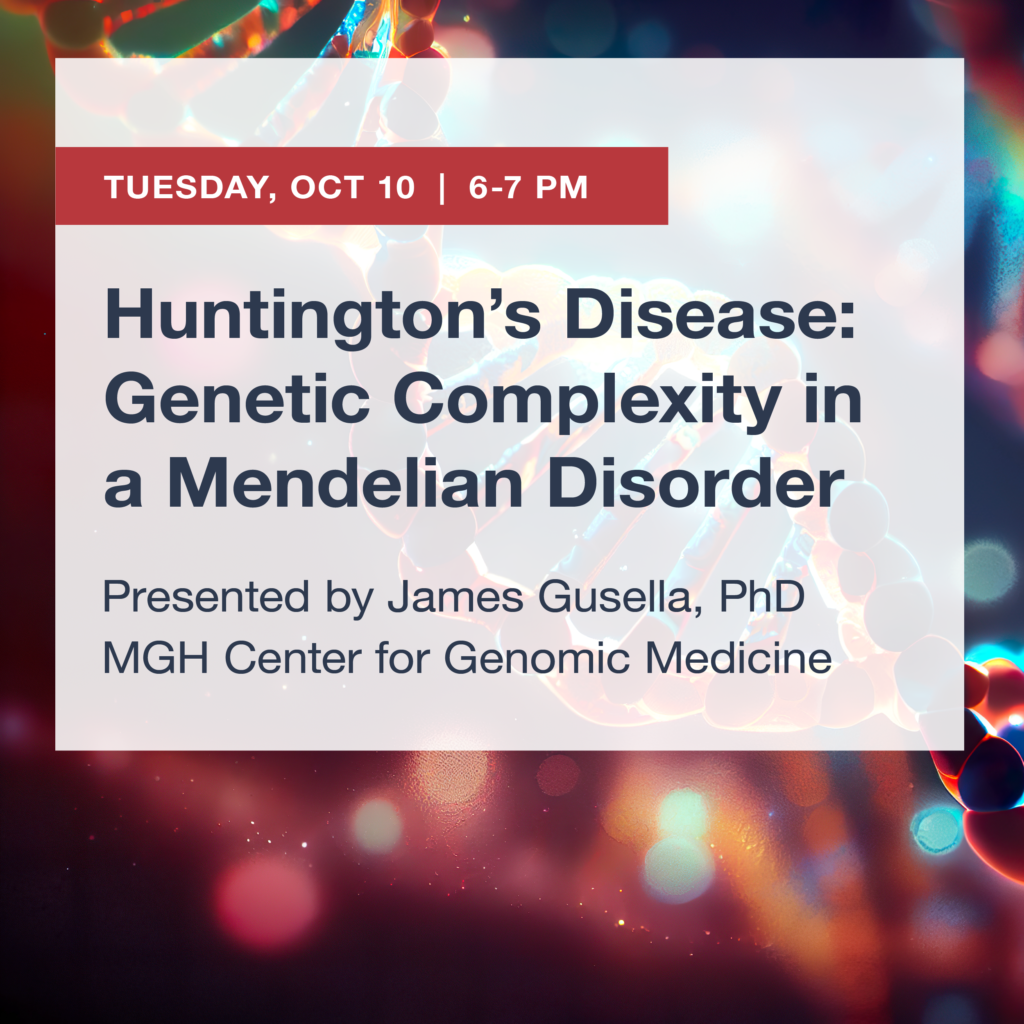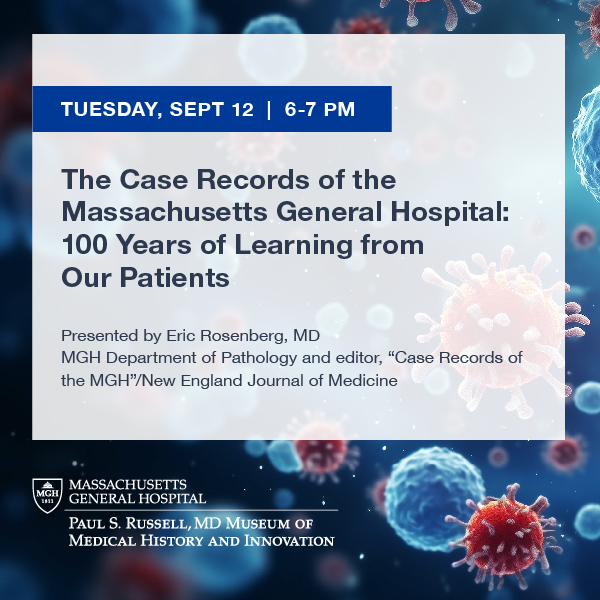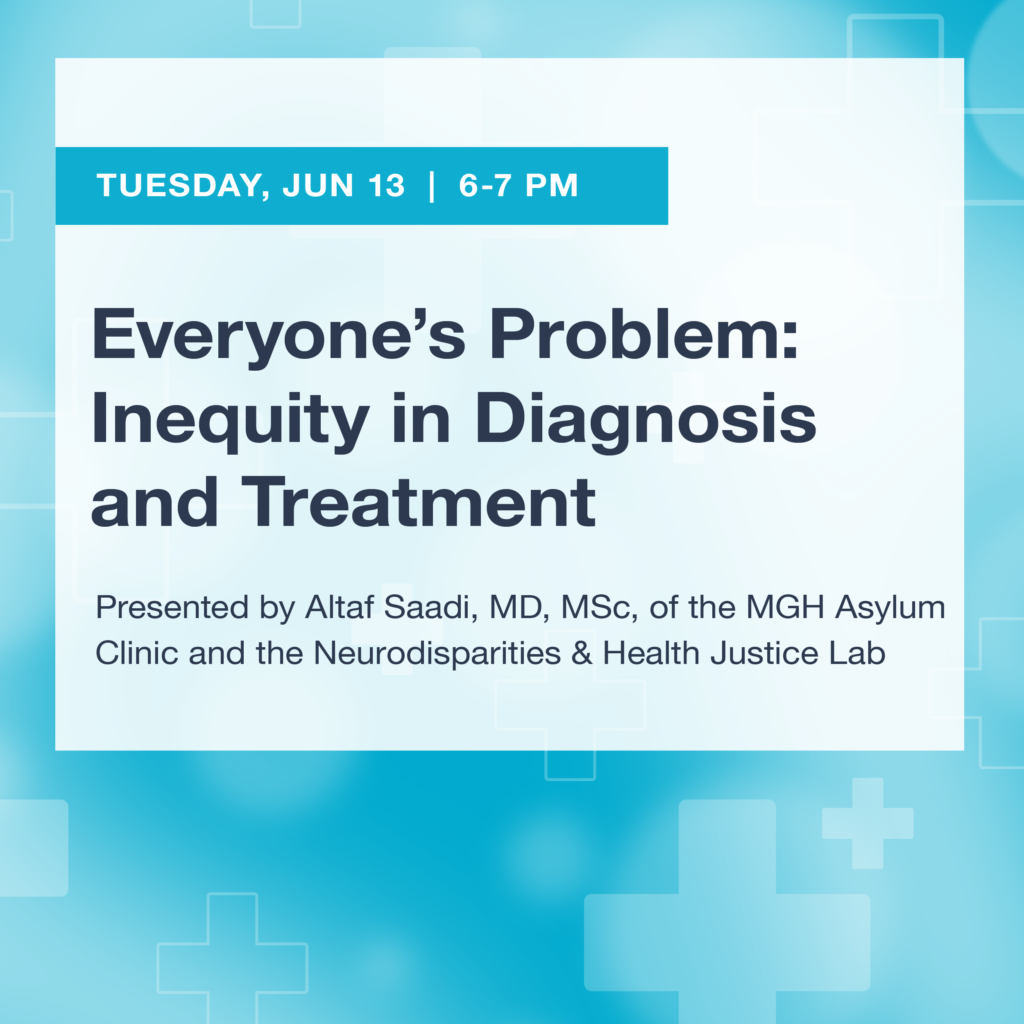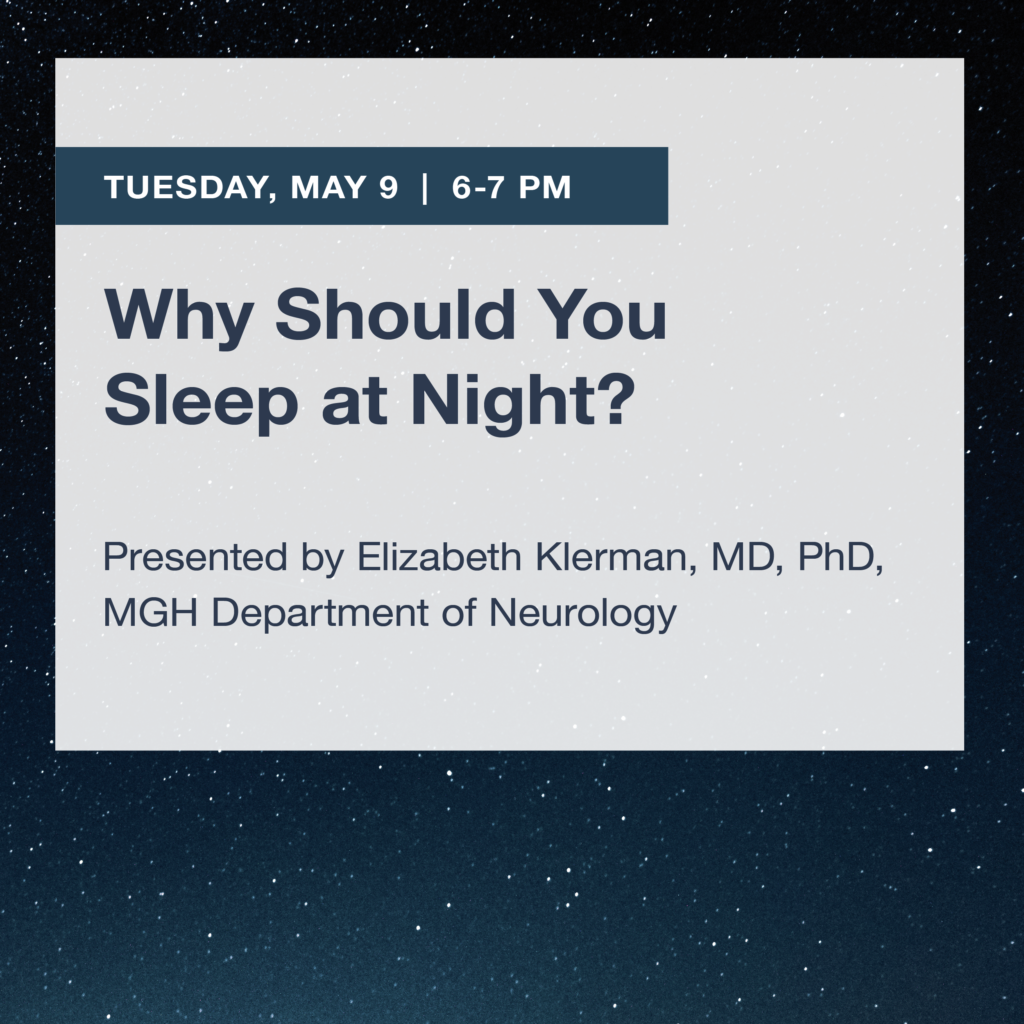Programs
Read more about upcoming and recent lectures.
In sessions run by MGH clinicians, the public has a chance to interact with and “diagnose” a medical mannequin. Learn more and view the schedule.(Click here to schedule a session for a group.)
Learn about free public tours of the museum and Ether Dome. (Planning a group visit? Click here.)
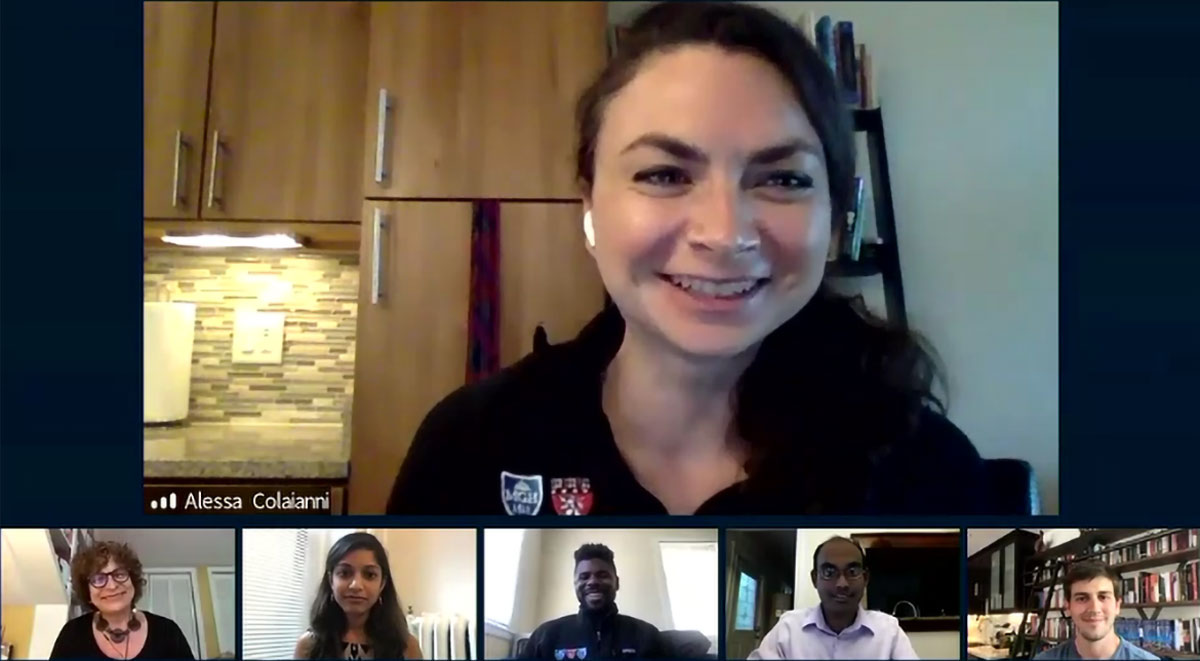
Upcoming Lectures
Watch this space for upcoming lectures.
Past Lectures
MGH 6th Annual Poetry at Work Celebration: The Costs of Caregiving
The Paul S. Russell, MD Museum of Medical History and Innovation at Massachusetts General Hospital and the MGH Writer-in-Residence Program invite you to the 6th Annual MGH Celebration of National Poetry Month – “Poetry at Work: The Costs of Caregiving.”
Join us Tuesday, April 23 from 12 pm to 1 pm for an hour of poetry and conversation. This hybrid discussion will take place in person in the MGH Russell Museum and virtually via Zoom.
To view the recording, please click here.
The Sky Was Falling: A Young Surgeon’s Story of Bravery, Survival, and Hope
During the early days of COVID-19, MGH surgeon Cornelia Griggs was on the front lines as case numbers grew, medical supplies dwindled, and health care providers pushed themselves and medicine beyond known limits to take care of their patients, and ultimately, themselves. Griggs discussed her harrowing personal experiences with MGH Writer-in-Residence Suzanne Koven, MD.
To view the recording, please click here.
Sickle Cell Disease: A Portrait of Racism in the American Health Care System
Sickle cell disease is a genetic blood disorder that is most commonly seen in people of color. For decades, this patient population has suffered bias that has affected federal funding for research into this life-threatening disease, leading to a lag in treatment options. Dr. Sharl Azar will discuss the effects of this bias for patients and what the future holds for treatment of this devastating disorder.
To view the recording, please click here.
Future Care: Sensors, Artificial Intelligence & the Reinvention of Medicine
MGH cardiologist Jag Singh’s book Future Care: Sensors, Artificial Intelligence, and the Reinvention of Medicine examines the need for understanding and adapting to a health care future centered on sensor-aided virtual care that is powered by artificial intelligence.
To view the recording, please click here.
Gun Violence in America: Community-Driven Approaches to this Local and National Crisis
In 2022, there were more than 48,000 gun deaths and 600 mass shootings in the U.S., yet funding for gun violence prevention research is difficult to obtain and most doctors are not taught how to approach the topic with patients. MGH Hospitalist Chana Sacks, MD, is a general internist at MGH. She co-founded the Mass General Gun Violence Prevention Center and formed the Mass General Gun Violence Prevention Coalition following a gun tragedy that profoundly affected her family. Dr. Sacks discussed why she has become a vocal advocate for gun violence prevention research and why she views gun violence as a solvable problem.
While this talk wasn’t recorded, we encourage you to visit the site of Transforming Narratives of Gun Violence, a collaboration by Sacks with Emerson College.
The MGH and the Rosebud Sioux Tribe: A Clinical & Community Partnership
The MGH Rural Medicine Program, in partnership with the Rosebud Sioux Tribe of South Dakota, works to strengthen the local health care system. Since 2016, Sioux leaders and MGH caregivers have worked together to continuously address the health care gaps in rural and reservation-based communities.
To view the recording, please click here.
Huntington’s Disease: Genetic Complexity in a Mendelian disorder
Huntington’s disease is a devastating inherited neurogenetic disease that was identified in the late 19th century. In 1983, a consortium of researchers from around the world led by MGH researcher Dr. James Gusella identified the genes that cause HD. Hear about the incredible story of how these genes were identified and what this meant for the families affected by this fatal disease.
To watch the recording, click here.
The Case Records of the Massachusetts General Hospital: 100 Years of Learning from Our Patients
In 1923, the New England Journal of Medicine began publishing the “Case Records of the Massachusetts General Hospital.” The records are based on conferences established at the hospital in the late 1800s, in which clinicians puzzle out diagnoses of unusual cases. Case Records editor Dr. Eric Rosenberg moved through a century of diagnostic mysteries.
Watch the recording here.
Everyone’s Problem: Inequity in Diagnosis and Treatment
Marginalized populations face health disparities in research, diagnosis and treatment at a higher rate of incidence than many other groups. Dr. Saadi discussed the potential for improving health outcomes for these patients through action-oriented and policy-relevant goals.
Watch the recording here.
Why Should You Sleep at Night?
Sufficient sleep is vital for normal function; insufficient sleep and/or sleep disorders are associated with increased risk of hypertension, obesity, mood disorders, errors and accidents. It is also one of the most obvious rhythms affected by the circadian clock. Dr. Klerman discussed her research on the role of sleep; why you need it, how to improve it, and why night is the best time to sleep.
Watch the recording here.
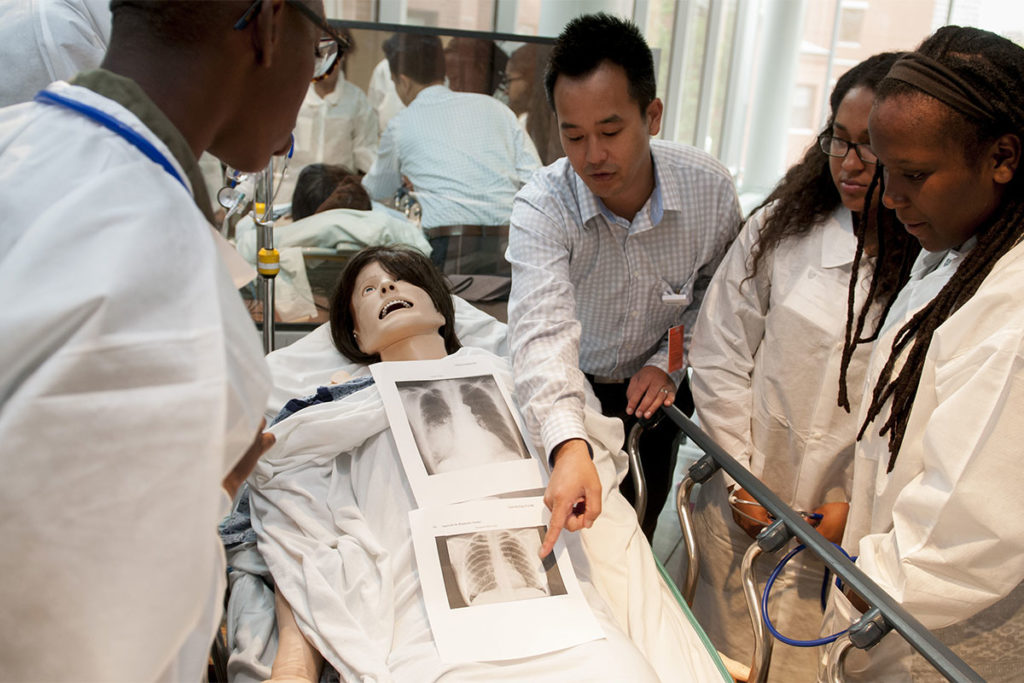
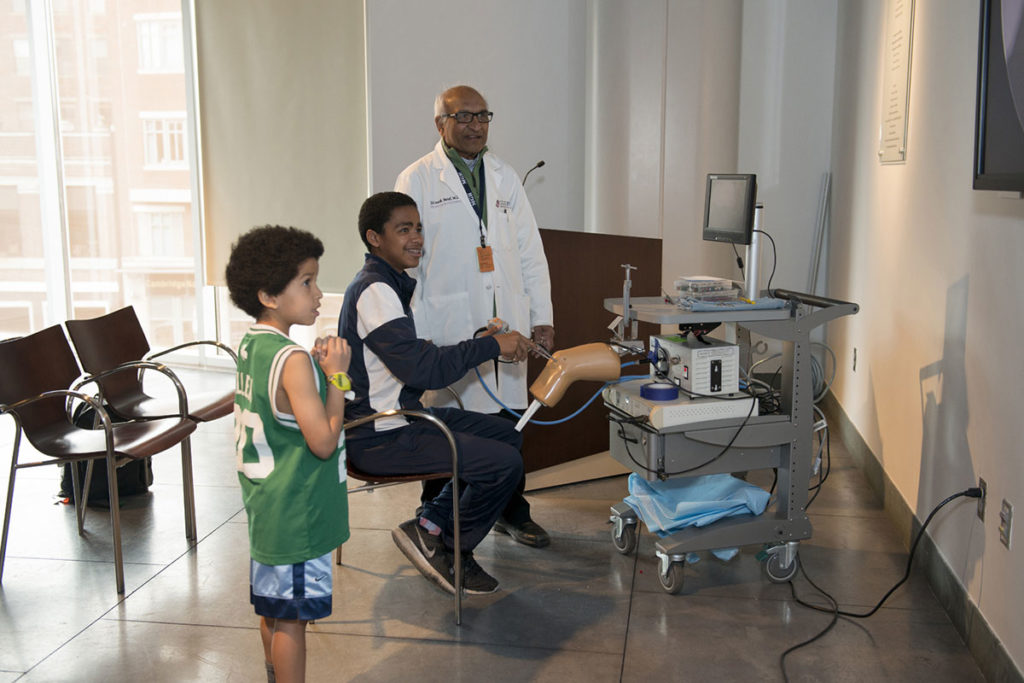
Simulation at the Museum
Join us to learn how realistic simulators are transforming training in the health professions. In these hands-on demonstrations by the MGH Learning Laboratory, you will get the chance either to take the vital signs of a full, lifelike human mannequin, or to locate and retrieve tiny objects from inside a knee model, using surgical instruments and a tiny camera.
Look for dates in the coming months.
Public Tours
Tours for the public and employees have resumed. In “Mass General: Two Centuries in 45 Minutes,” tour the Ether Dome and other points of historical interest in the hospital’s main complex. If you have more time, follow your guide back to the museum.
Space is limited to 12 people. To register, go to mghrussellmuseum.eventbrite.com.
For tours with groups of 10 or more, see detailed information here.
To sign up to receive information about lectures and other museum programming, please email mghhistory@partners.org.

